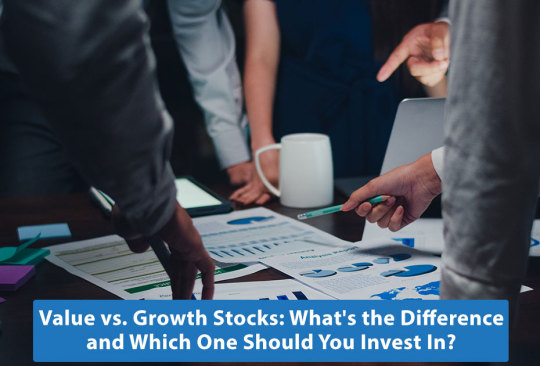#share market investments
Text
I am very much a bargin bin collector and just follow market prices so I know when something I find is a good deal. I could hardly ever afford anything over a few hundred dollars even saving up for a while (at the end of the day I still prefer to save money for practical expenses and emergencies), but I like to think outside the box and find more obscure but nice quality pieces or broken/damaged stuff I can restore or have restored. It's helped a ton for getting nice pieces within my budget and I feel like my collection is more "me" because it's not the big show pieces but a lot of little things that add up to to one big curated collection with a lot of extra love in it.
#that plus just being a collector for 30 years and knowing a ton of cool friends and sellers who've helped me get a lot of awesome stuff#like it's a labor of love for sure#I love sharing my collection but I'm not wealthy by any means#I collect a lot of generally cheap stuff plus some bigger pieces sprinkled in#but the most I've ever spent on anything non-practical was like $700 or so?#and that was still after saving for a few montns#you gotta be in it for the long haul and know your market fod good deals#the time investement is honestly more than the financial one in most cases 😭#jackal's journal
65 notes
·
View notes
Text
youtube
Watch the American Climate Leadership Awards 2024 now: https://youtu.be/bWiW4Rp8vF0?feature=shared
The American Climate Leadership Awards 2024 broadcast recording is now available on ecoAmerica's YouTube channel for viewers to be inspired by active climate leaders. Watch to find out which finalist received the $50,000 grand prize! Hosted by Vanessa Hauc and featuring Bill McKibben and Katharine Hayhoe!
#ACLA24#ACLA24Leaders#youtube#youtube video#climate leaders#climate solutions#climate action#climate and environment#climate#climate change#climate and health#climate blog#climate justice#climate news#weather and climate#environmental news#environment#environmental awareness#environment and health#environmental#environmental issues#environmental justice#environment protection#environmental health#Youtube
7K notes
·
View notes
Text

ABEInk on Redbubble
#artists on tumblr#branding#marketing#success#investing#abeink0911#abeink#redbubble#abeink1030#switzerland#love#love for love#love 4 love#love iv love#give love#share love#be loving
16 notes
·
View notes
Text
US stock trading sharing
As long as you have any investment questions, you can ask me and I can help you solve any investment problems. My confidence comes from the recognition of my abilities
#donald trump#finance#investing#nyc#stock market#ask#answered#ask game#stock trading#shares#stock tips#stockstowatch#stockstobuy#stockholm#investment#investors#real estate investing#investing stocks#savings#options#opportunities
3 notes
·
View notes
Text
IRFC Share Price – Welcome Yono Informer readers! Dive into the world of investment as we unravel the exciting journey of IRFC shares. In this exclusive article post, we bring you insights, trends, and all you need to know about IRFC shares. Whether you’re a seasoned investor or a curious beginner, join us on this financial exploration. Let’s navigate the intricacies together and discover the potential within IRFC shares. Stay informed, stay empowered.

2 notes
·
View notes
Text
#stocks#free#freestock#money#join now!!!#share#repost#rp#stock market#investing#make money online#make money from home
2 notes
·
View notes
Text

Start trading at Low Brokerage
Open Free* Demat & Trading Account
Easy Mobile Trading App
Lowest Brokerage
Expert Research Advice
Personal Dealer Support
Call now- 0731 6620000
Website: www.mandotsecurities.com
#mandotsecurities#free demat account#zero brokerage#best share broker#top demat account#start trading for free#stock market trading account#invest in stock market
2 notes
·
View notes
Text
What is an IPO?
An Initial Public Offering (IPO) is a financial process through which a private company transitions into a public company by offering its shares to the general public for the first time. This involves the issuance of new shares to investors, allowing the company to raise capital directly from the public. The IPO enables the company to access public markets and diversify its sources of funding. Additionally, it provides existing private shareholders the opportunity to sell their shares to the public, allowing them to realize the value of their investments and potentially trade their shares on stock exchanges. Overall, an IPO is a significant milestone for a company, facilitating increased visibility, liquidity, and financial resources.
6 notes
·
View notes
Text

Mutual fund Portfolio diversification
Join Ideal Money and get all type mutual fund
Equity Funds:- Invest in stocks, offering potential high returns but with higher risk due to market volatility.
Fixed-Income Funds:- Focus on bonds, providing regular interest income and considered lower risk compared to stocks.
Balanced Funds:- Combine stocks and bonds to strike a balance between growth and income, suitable for diversified portfolios.
Money Market Funds:- Invest in low-risk, short-term securities, ideal for capital preservation and liquidity.
Index Funds:- Replicate specific market indexes, offering low costs and broad market exposure.
Sector Funds:- Concentrate on specific industries or sectors, allowing targeted investments but with sector-specific risk.
International and Global Funds:- Provide exposure to international markets, broadening diversification.
Target-Date Funds:- Tailored for retirement planning, adjusting asset allocation based on the investor's retirement date.
Specialty Funds:- Focus on niche markets or themes, such as sustainable investing, real estate, or commodities.
Actively Managed Funds:- Managed by professionals aiming to beat market benchmarks through active research and trading.
Passively Managed Funds:- Aim to match specific indexes with lower fees, ideal for long-term, cost-effective investing.
Exchange-Traded Funds (ETFs):- Similar to mutual funds but traded on stock exchanges, offering liquidity, diversification, and flexibility for investors.
Please contact me for any further questions.
Email ID - [email protected]
visit - https://www.idealmoney.in/
It's post only educational purpose, don't provide any recommendations.
https://www.idealmoney.in/
#ideal money#myidealmoney#share market#stock market#mutual funds#stock market news#investment with experience#idealmoney#business#investmentwithexperience
4 notes
·
View notes
Text

MarketMind Academy : your Gateway to Financial success
https://marketmindacademy.xyz/
#invest#investing stocks#investors#stock broker#share market#stock#stock market#investment#stocks news#stocktrading
2 notes
·
View notes
Text
0 notes
Text

Be Careful & Learn These Before Investing.
𝔽𝕠𝕝𝕝𝕠𝕨 𝕦𝕤 𝕗𝕠𝕣 𝕞𝕠𝕣𝕖 𝕦𝕡𝕕𝕒𝕥𝕖𝕤
Get GUIDANCE from MARKET EXPERT
We are SEBI Registered & Trusted by 10,000+ investors
Open free DEMAT + TRADING Account with Us
mosl.co/MJS692msYj
Check Link in Bio
Join us on Telegram
Follow on all Social Media Sites
Search on Google "Kangfinz Pvt Ltd"
Visit Our Website
Get Latest Share Market Updates on WhatsApp Group
Subscribe us on YouTube
#investment#Kangfinz#IPOUpdates#SIP
#stockmarket#stocks#investing#trading#money#finance#traders#invest#nifty#investor#sharemarket#pmnarendramodi#pmnarendramodi#narendramodi#nse#india#bse#daytrading#nifty#psu#sharebazar#sharebazarindia#sharemarketindia#stockmarketindia#stockstobuy#businesshindi
4 notes
·
View notes
Text

2 notes
·
View notes
Text
#how to invest in stocks#investing for beginners#stock market#investing#the most important thing in investing in stocks#stock market investing#stock market for beginners#stocks#value investing#share market basics for beginners#stock market in india#the single most important metric for stock market investing#the most important things when buying stocks#how to begin investing in the share market#investing in your 20s#investing in international stocks
2 notes
·
View notes
Text
youtube
#share market#stocks market#multibagger stocks#investment tips#funny jokes#jokes#stocks#bollywood#Youtube
3 notes
·
View notes
Text
Value vs. Growth Stocks: What’s the Difference and Which One Should You Invest ??

When it comes to investing in stocks, there are various strategies and approaches that investors can employ. Two popular investment styles are value investing and growth investing. Understanding the difference between these two approaches is essential for making informed investment decisions. In this blog, we will delve into the characteristics of value and growth stocks, explore their differences, and help you determine which one aligns with your investment goals.
Value Stocks: Uncovering Hidden Gems
Value stocks are companies that are considered undervalued by the market, trading at prices lower than their intrinsic value. These stocks often have stable earnings, pay dividends, and possess solid fundamentals. Value investors typically focus on identifying stocks with low price-to-earnings (P/E) ratios, low price-to-book (P/B) ratios, or other valuation metrics that suggest the stock is priced lower than its actual worth. Value stocks may include mature companies in established industries that may have experienced temporary setbacks or are overlooked by the market.
Top of Form
Bottom of Form
Key Characteristics of Value Stocks:
Low valuation metrics: Value stocks often have low P/E ratios, P/B ratios, or other valuation metrics compared to their industry peers.
Dividend payments: Many value stocks are known for their consistent dividend payments, making them attractive to income-focused investors.
Established companies: Value stocks are typically found in well-established industries, where companies have a long history and solid track records.
Potential for turnaround: Value investing involves identifying companies with potential for a turnaround or market correction, where their true value may be unlocked over time.
Growth Stocks: Investing in the Future
Growth stocks, on the other hand, are companies that exhibit strong growth potential, often characterized by above-average revenue and earnings growth rates. These companies typically reinvest their earnings back into the business to fuel expansion, rather than paying dividends. Growth investors seek companies that are at the forefront of innovation, disruptive technologies, or emerging industries, with the expectation that their earnings and stock prices will rise substantially in the future.
Key Characteristics of Growth Stocks:
High revenue and earnings growth: Growth stocks typically demonstrate above-average revenue and earnings growth rates compared to their peers and the overall market.
Limited or no dividends: Instead of distributing profits as dividends, growth companies reinvest earnings into research, development, and expansion.
Technological or industry disruptors: Growth stocks are often associated with companies leading the charge in innovative sectors or disrupting traditional industries.
High valuations: Due to their growth potential, growth stocks may trade at higher P/E ratios and valuation multiples compared to their current earnings.
Which Should You Invest In: Value or Growth?
Deciding whether to invest in value or growth stocks depends on your investment objectives, risk tolerance, and investment horizon. Both approaches have their merits:
Value stocks can offer stability, income potential, and the opportunity to buy companies at a discount. They are favored by conservative investors seeking established companies with solid fundamentals and attractive dividend yields.
Growth stocks, on the other hand, offer the potential for significant capital appreciation. They are suitable for investors with a higher risk appetite, a long-term investment horizon, and an interest in innovative industries and emerging trends.
Some investors choose to maintain a balanced portfolio that includes both value and growth stocks, diversifying their risk and capitalizing on opportunities across different market segments.
Ultimately, the decision between value and growth investing comes down to your personal financial goals, investment strategy, and risk tolerance. It is advisable to consult with a financial advisor or conduct thorough research before making any investment decisions.
Conclusion:
Value and growth investing represent distinct approaches to stock selection, each with its own set of characteristics and potential rewards. Value investing focuses on finding undervalued companies with solid fundamentals and stable earnings, while growth investing targets companies with high growth potential and innovation. The choice between value and growth stocks ultimately depends on your investment objectives, risk tolerance, and time horizon.
I hope you have received all of the necessary information, for additional information, please see our blog area
#investment shares StockPicks#stockmarket#Strategy#Stockstobuy#BestStockstobuy#investment#stock market#stockpicks#best stocks for swing trading#crypto#stock market news#stockxpo#stocks#stock
2 notes
·
View notes